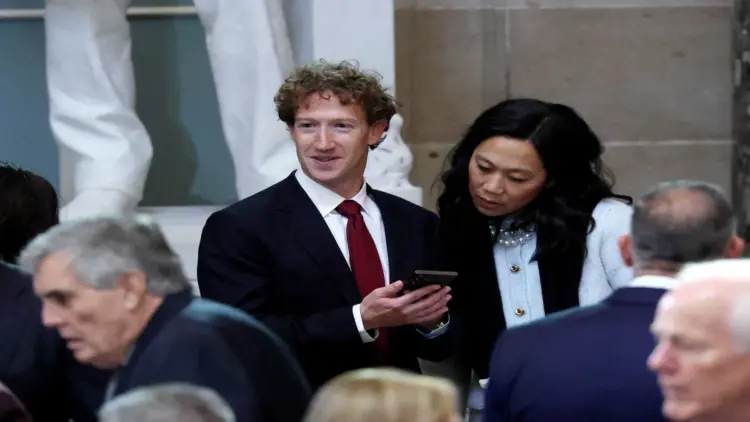Mark Zuckerberg confronts his most perilous legal challenge yet as an $8 billion shareholder lawsuit threatens to hold him personally accountable for Facebook’s systematic privacy violations that enabled the Cambridge Analytica scandal. The Delaware Chancery Court trial represents a watershed moment in corporate governance, testing whether tech billionaires can be forced to pay massive damages for allegedly knowingly breaching user privacy agreements and failing in their fiduciary duties. With Zuckerberg’s personal fortune and reputation on the line alongside fellow defendants including Sheryl Sandberg and Peter Thiel, this landmark case could fundamentally reshape how corporate leaders are held responsible for data privacy failures and establish unprecedented precedent for executive accountability in the digital age.
Legal Foundation and Claims
An $8 billion trial by Meta Platforms META.O shareholders against Mark Zuckerberg and other current and former company leaders kicks off on Wednesday over claims that they illegally harvested the data of Facebook users in violation of a 2012 agreement with the U.S. Federal Trade Commission.
Jeffrey Zients, White House chief of staff under President Joe Biden and a Meta META.O director for two years starting in May 2018, is expected to be one of the first witnesses to take the stand in the non-jury trial before Kathaleen McCormick, chief judge of the Delaware Chancery Court.
The case will feature testimony from Zuckerberg and other billionaire defendants including former Chief Operating Officer Sheryl Sandberg, venture capitalist and board member Marc Andreessen, and former board members Peter Thiel, Palantir Technologies PLTR.O co-founder, and Reed Hastings, co-founder of Netflix NFLX.O.
A lawyer for the defendants, who have denied the allegations, declined to comment.
Cambridge Analytica Origins
The case began in 2018, following revelations that data from millions of Facebook users was accessed by Cambridge Analytica, a now-defunct political consulting firm that worked for Donald Trump’s successful U.S. presidential campaign in 2016.
The FTC fined Facebook $5 billion in the wake of the Cambridge Analytica scandal, saying the company had violated a 2012 agreement with the FTC to protect user data.
Shareholders want the defendants to reimburse Meta for the FTC fine and other legal costs, which the plaintiffs estimate total more than $8 billion.
In court filings, the defendants described the allegations as “extreme” and said the evidence at trial will show Facebook hired an outside consulting firm to ensure compliance with the FTC agreement and that Facebook was a victim of Cambridge Analytica’s deceit.
Corporate Governance Implications
Meta, which is not a defendant, declined to comment. On its website, the company has said it has invested billions of dollars into protecting user privacy since 2019.
The lawsuit is considered the first of its kind to go to trial which alleges board members consciously failed to oversee their company. This is often described as the hardest claim to prove in Delaware corporate law.
Boeing’s current and former board members settled a case with similar claims in 2021 for $237.5 million, the largest ever in an alleged breach of oversight lawsuit. The Boeing directors did not admit to wrongdoing.
Insider Trading Allegations
In addition to privacy claims at the heart of the Meta case, plaintiffs allege that Zuckerberg anticipated that the Cambridge Analytica scandal would send the company’s stock lower and sold his Facebook shares as a result, pocketing at least $1 billion.
Defendants said evidence will show that Zuckerberg did not trade on inside information and that he used a stock-trading plan that removes his control over sales and is designed to guard against insider trading.
McCormick is expected to rule on liability and damages months after the trial concludes.
This $8 billion trial represents a defining moment for corporate accountability in the digital age, where the outcome will determine whether tech executives can be held personally liable for systematic privacy violations that harm millions of users. If successful, the lawsuit could establish a powerful precedent that corporate leaders cannot hide behind corporate structures when their deliberate actions violate user trust and regulatory agreements. The stakes extend far beyond Zuckerberg’s personal fortune to the fundamental question of whether billionaire tech executives will finally face meaningful consequences for prioritizing profits over privacy in an era where personal data has become the world’s most valuable commodity.
GCN.com/Reuters.


